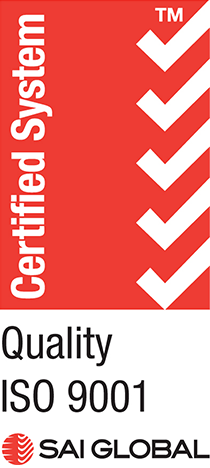The quality of your finished product will depend on the quality of your materials. When it comes to the durability and longevity of your products, the bolt quality you work with will play a critical role, especially when heavy weights and high-stress forces are involved. The goal here will be to avoid any possibility of deformation or failure under stressful conditions and this is where bolt bending resistance comes into play.
In this post, we’ll explore some of the essential design factors that contribute to a bolt’s resistance as well as some peripheral considerations to keep in mind. Whatever industry or application you intend to use these bolts in, paying heed to the factors below will contribute positively impact the outcome of your project.
Bolt Geometry and Shape
The shape and geometry of a bolt will play the most impactful roles in its performance. Thread shape refers to the pitch and depth of the thread, as this ultimately determines the distribution of the weight bearing on it. This becomes even more important when sourcing structural bolts or industrial bolting, which must be designed with extremely high resilience in mind.
You’ll find that bolts with coarser threads have less resistance to bending forces than finer threaded examples. Additionally, the diameter and shape of the bolt’s shank and head will be significant, as thicker shanks and diameters provide for more resistance against bending. Choosing the right tools and supplies for your next project may make the difference between your project’s success or failure.
Type of Bolt Material
A great way to achieve the highest levels of resistance and durability in bolts is by making them out of the right material. Metals with higher levels of toughness and yield strengths will perform much better. Unless you order supplies made from custom bolt materials from your bolts manufacturer, heat treating the bolts before they are put to work will significantly increase their hardness and strength.
Thread Engagement
Premier providers of high strength bolts typically carry broad ranges of nuts, bolts, and fasteners to suit the needs of various clients. Thread engagement refers to how a bolt’s thread will align and engage with the threaded receiving holes, which optimizes the load distribution. Localized bending is a major cause of bolt fractures, which can be guarded against by ensuring that they are properly engaged. Tightening bolts to the right levels of torque (not too tight and not too loose) will prevent premature bending and uneven load stresses.
Tightening and Preload Techniques
Preloading refers to the practice of applying a certain level of tension to nuts and bolts, which helps them be more capable of resisting the harmful effects of external stress. To achieve this effect, modern manufacturing processes can provide us with special lock mechanisms such as washers and lock nuts that are designed to maintain the preload tension for long periods, effectively preventing the slow loosening that takes place during cyclic loading conditions.
Load Distribution and Bolt Arrangement
You can arrange bolts in various patterns or arrays, and this will influence their performance under stress. Bolts arranged in rows or patterns (e.g. diamond, square, circle, and so on) will transmit, dissipate, and absorb the loads placed on them differently, leading to differing outcomes. The bolt bending resistance of high-end fasteners make them ideal for all sorts of stock and custom bolt applications.
Fatigue Resistance
Cyclic loading refers to the repeated application of a strain or stress to a material and is a factor affecting bolt resistance due to the nature of their work. Due to the nature of cyclic loading, the effects or damage will accumulate over time rather than happen in an instant. Over time, this accumulation of damage results in material fatigue, which eventually leads to failure.
American-Made Custom Bolts
Bolts might seem like insignificant parts of any project, but they play an essential role when we look at the stability, longevity, and strength of many structures, machines, and products. While the design of a bolt will often be the most crucial determining factor for its resilience, its installation, load distribution, and material will also be important elements to consider.
Whether you’re working in the aerospace, defense, oil/gas, medical, or energy sector, you will rely on high strength structural bolts and other types of high strength fasteners. For many years now, B&G Manufacturing has been at the forefront of the fastener manufacturing industry, providing high quality custom bolts, engineered components, and extreme high strength fasteners. If you’re ever in need of a reliable fastener supplier for your next project, make B&G Manufacturing your first call. You won’t regret it!


 Hatfield
Hatfield

